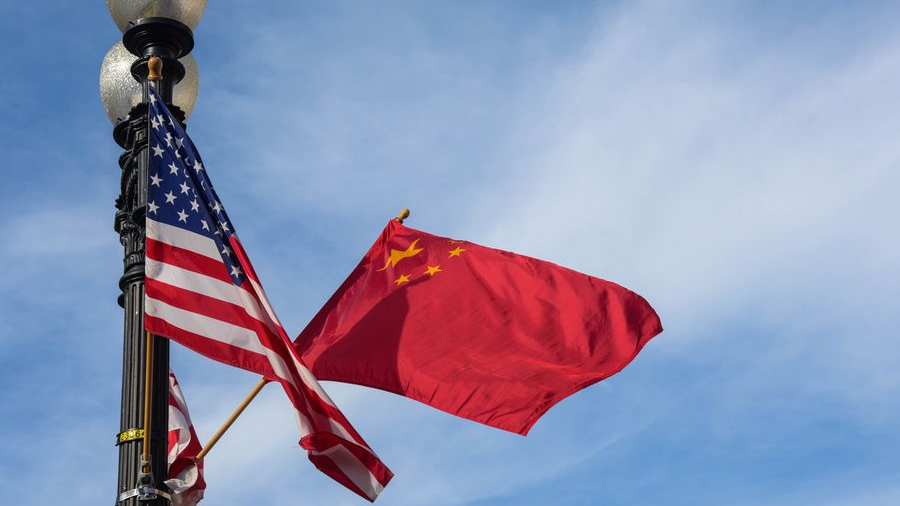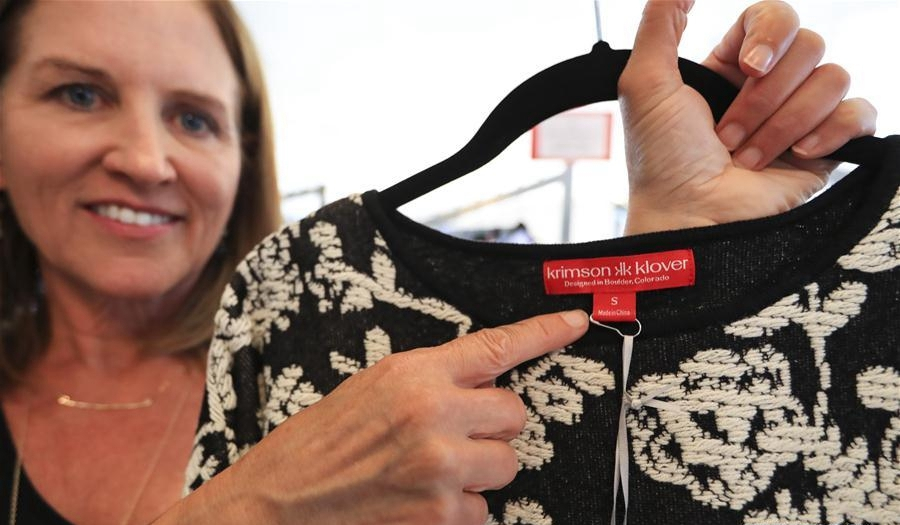
Editor's note: Tom Fowdy is a British political and international relations analyst and a graduate of Durham and Oxford universities. He writes on topics pertaining to China, the DPRK, Britain, and the U.S. The article reflects the author's opinions, and not necessarily the views of CGTN.
Mike Pompeo is at it again. In a speech to the National Governors Association, a conference wherein the elected heads of American states gather, the U.S. secretary of state warned the representatives of engagement with China saying that "it affects our capacity to perform America's vital national-security functions" and urged them to adopt a "cautious mindset." He further stated that a Chinese think tank had outlined the political positions of each respective governor, exaggerating it as a government effort, and then proceeded to say that the post-Cold War U.S. relationship with China was based on the premise that the country should "become a democracy."
The comments mark a string of inflammatory attacks against Beijing from the secretary of state, contrasting sharply with Trump's more conciliatory and supportive tone towards Chinese President Xi Jinping. Yet again, his accusations are somewhat zealous and not surprisingly, unfounded. It is a natural and instinctive phenomenon for all business people around the world to build ties with local governments both formally and informally, with such leaders aiming in tandem to court overseas business ties and to focus on respective investments in their regions. Given this, it is misleading to assume that there is any "state-level" targeting by China's government and to attempt to portray beneficial ties as a form of infiltration.
Local governments and central governments are different, largely because of separate scopes of jurisdiction, authority and respective interests. You may call it a distinction between "high politics" which concerns contentious matters such as national security, military and criminal law and "low politics" which involve less controversial aspects such as local planning, spending and minor regulations. Given this, one focuses on an entire country, the other focuses specifically on the needs of a local area. These very tangible differences mean that the two bodies do not always see the world eye to eye.

Krimson Klover's CEO and founder Rhonda Swenson shows a jacket made in China in Boulder, Colorado, the United States, September 12, 2019. /Xinhua photo
Krimson Klover's CEO and founder Rhonda Swenson shows a jacket made in China in Boulder, Colorado, the United States, September 12, 2019. /Xinhua photo
Pompeo's speech sought to breach that respective gap by making the argument that what "worries" the American federal government should also worry state governments too, especially the so-called "threat" from China. Now whilst it may seem reasonable and understandable to correlate between the two tiers of jurisdiction, nevertheless the secretary of state sought to weaponize unfounded fear against State governors by falsely claiming that China was targeting them because it has had limited success with the hawks in Washington, in essence perpetuating rumors that Beijing wants to "infiltrate" America from the state level.
This is unfair and is floated on McCarthyite logic trying to twist what are business relationships between China and American states, into political subversion. It is in fact an extremely ordinary phenomenon for business people and organizations to court ties with regional governments, because it is these ties which are essential for securing trade, investment and exchanges, all beyond the scope of "High politics" and are uncontroversial. Local government officials throughout the world regularly travel abroad for this end, because they want people to invest in their region. Similarly in China itself, it is also normal for provinces to seek overseas ties and investment opportunities with their counterparts. This happens autonomously of the central government.
Given this, Mike Pompeo is weaponizing crude stereotypes when he conceives China as a monolithic and unified actor which has a sole goal and political strategy, which according to him is to subvert the United States on a regional level. This is wrong. Instead, China should be conceived as a country with many different people, companies with respective interests, all of whom who have agency and their own stakes in who they do business with, which is not puppeteered by the central government. In doing so, the secretary of state willingly misrepresents fairly normal relationships with local governments as a sinister top-down grand strategy. Yet these kinds of sweeping assumptions have become completely normal in Washington DC, with everything being painted as a threat.
As a result, one would hope that state governments take Pompeo's comments with a pinch of salt and continue to opt for their best interests above opportunistic Washington scaremongering. There is no harm and no risk in individual states seeking beneficial trade and investment ties with China in uncontroversial areas, something which has gone on for a long time and should continue. As ever, Pompeo's fanaticism is based on fear, not facts.
(If you want to contribute and have specific expertise, please contact us at opinions@cgtn.com.)